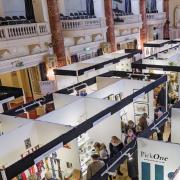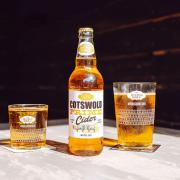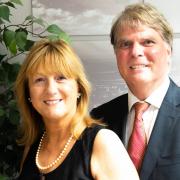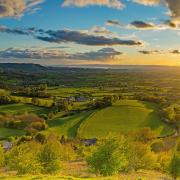Worcester Bosch is one of the most recognised names in domestic heating and water. Now it’s developing some unexpected new products says CEO Carl Arntzen

There’s a lovely warm feeling when I walk into reception at Worcester Bosch, which makes and sells more domestic boilers than any other manufacturer in the UK.
Not because of what they make, but because the place is buzzing with people smiling, greeting visitors like old friends and dragging chairs together for apparently ad-hoc meetings. It’s a breath of fresh air from some of the more austere receptions I visit. Sometimes a frosty receptionist eyeballs me as if I’m about to pinch the latest copy of Widget Weekly, or munch my way through the corporate bowl of Murray Mints.
Worcester Bosch HQ sits next to Junction 6 of the M5. It employs around 1,650 people (more than 1,000 of which work at the Worcester factory) and reported sales past year of nearly £460 million. It is the largest private employer in the city and the brand represents around 30% of the UK’s domestic boiler sales.
Tucked into a corner of the reception is the bust of founder Cecil Duckworth, who established Worcester Engineering in 1962, co-incidentally the same year that the current chief executive, Carl Arntzen – the man I’m here to interview, was born.
Carl has lived and worked in Worcester all his life, despite his Norwegian surname (his Scandinavian father moved to England after the war). Bar four years with another engineering business mid-way through his career, all his working life has been spent at Worcester Engineering, which in 1992 became Worcester Bosch, when German manufacturer Bosch bought the business.
What’s it like having a German parent? A very good thing, says Carl.
“There are not many independent British companies left in the manufacturing sector. When Cecil was looking to sell the business in the 1990s he wanted a company that would invest to secure its long-term sustainability. He couldn’t have found a better partner.
“Bosch is a private charitable trust. It doesn’t have to worry about external shareholders and can think long term,” he adds.
Carl cites the company’s new distribution centre as an example. “We wanted to amalgamate three which we operated across Worcester. We planned and submitted an application within the group to build a new one, and they told us we hadn’t projected far enough ahead. Think 15 years, said the Board. So we did, and the result is a large warehouse with plenty of growth capacity.”
Those investing in UK manufacturing could learn lessons from Germany, where its culture of looking longer term means that the sector continues to contribute well over 20% to Germany’s GDP, compared with around 8% in the UK. Bosch is in a particularly good position in that it is completely self-financing, It turned over €20 billion globally last year in increasingly competitive markets.
How does it do it? “You have to keep reinventing, reinvesting and innovating to stay ahead,” says Carl.
Around 9% of sales are reinvested in research and development, increasingly in more diverse business fields and models, as well as its core product of domestic boilers and heating systems. “Our R&D team not only design and develop product for us to manufacture in the UK, but they are also working on products for the rest of the world,” explains Carl.
The company continues to manufacture its core product and it is also investing research in software development. Carl explains: “We are developing technology to fulfil functionality requirements between a range of equipment and services. We already have an app that can be downloaded on to a smart device. This learns from your system’s behaviour and includes the use of live weather data to keep track of fuel usage and more. These systems can be extended to pretty much any piece of equipment, from heating and lighting systems to autonomous cars.”
Recently Bosch launched a cloud infrastructure to undertake its own data collection and processing, rather than buying in services from a third party provider.
Things are changing in the manufacturing sector. We can no longer judge a business by its traditional products. Innovation means thinking laterally rather than simply designing and manufacturing smaller, more compact heating systems, though Worcester Bosch is doing that too.
The company is also looking back as well as forward. It is now building and selling wood-burning stoves. A regressive step? No, says Carl. “People are increasingly concerned about sustainable heating and many are seeking a more sustainable, second source of heating in their homes.”
However, it’s the intangible innovations where massive development is expected in the coming years. “It will be fascinating to see what evolves and matures and what innovations are discarded. Also, how we make the internet and internet of things valuable to our daily lives.
“There will always be a need to heat homes and wash clothes, and with new build homes becoming more airtight, there will be a need for more sophisticated ventilation systems too.”
Carl did a sandwich degree in mechanical engineering at Birmingham University and Worcester Engineering. Six months at university and six months at work, with the final year at university before joining Worcester Engineering full time. His first role was in product development, and then he trained installers before gaining wider experience working his way around the company’s departments. In the mid 1990s, after Bosch acquired Worcester Engineering, he went to work for the parent company in Germany, returning after three years to run the after sales department. Then, with itchy feet, he left to join BG Group, working in gas utilisation.
After four years of discovering, perhaps, that the grass wasn’t greener on the other side of the fence, one evening when returning home from a trip via Birmingham airport he bumped into Worcester Bosch’s previous CEO, Richard Soper. “He persuaded me to return to the business as his successor.” Carl took over when Richard retired last summer.
Since then he has been pushing for an increased share of the residential market. As well as wood burning stoves, the company now manufactures window contacts, smoke and motion detectors. There is also a sales and marketing team based at Worcester working on a new range of large commercial and industrial boilers for hospitals and hotels. These are sold under the Bosch brand.
“The world is changing fast, and it’s going to change even quicker,” says Carl “We have to keep innovating and reinventing ourselves to lead the market ahead of the competition.”
Before I leave, Carl leads me out via the factory floor, which is surprisingly far less automated than it was a few years ago. When I ask where the production line is Carl tells me that the business builds to order. “It takes more employees, but as so many of our products are different, it’s actually more efficient.”
Worcester Bosch has taken German efficiency to heart, but the workforce aren’t letting them have it all their own way. There’s a lovely Anglo German joke awaiting me as we head back to reception. A company meeting room has been colourfully redecorated. On the back wall is a trompe l’oeil of a beach and ocean. The flooring is sand-coloured and there are two deckchairs. The one nearest the ocean is covered with a German Flag representing a towel. A warm sense of humour reigns at Worcester Bosch.



























